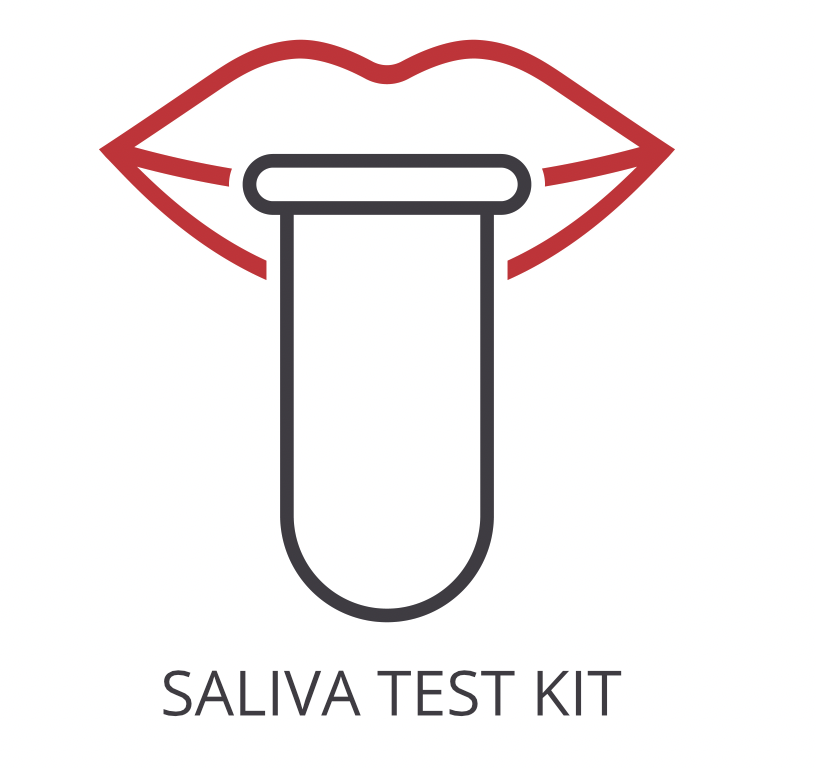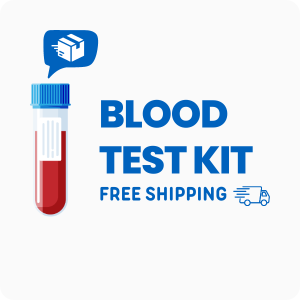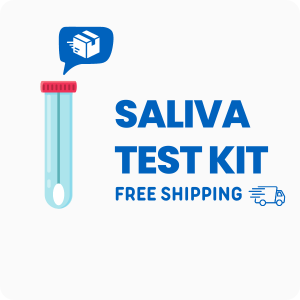Ordering the Salivary Hormone Panel (14)
The Salivary Hormone Panel (14) is designed to measure a wide range of hormones using simple saliva samples collected at home. This test helps pinpoint hormone imbalances that may be linked to symptoms like fatigue, mood changes, sleep problems, and changes in weight or libido. Interestingly, saliva testing can show the body’s active hormone levels, which may not always match what is found in blood tests.
Ordering this test gives you a clear look at your hormone patterns throughout the day and night, which can help your healthcare provider make more informed decisions about your care. When ordering, you can expect these specific benefits:
- Tracks hormone changes over a 24-hour period for a more complete picture
- Detects patterns in cortisol, estrogen, testosterone, and other hormones that may be missed with single-point testing
- Helps identify hormone-related causes of symptoms like night sweats, low energy, or mood swings
- Supports targeted treatment plans by showing which hormones are out of balance
- Offers a non-invasive, stress-free way to collect samples at home
Who Should Consider Hormone Imbalance Testing
People who have been feeling tired, irritable, or have noticed changes in sleep, mood, or weight may benefit from this test. For example, someone who has been struggling with low energy and trouble focusing at work, despite getting enough sleep, might find answers by checking their hormone levels.
Ordering this test may also be helpful in these situations:
- Experiencing hot flashes or night sweats during menopause
- Dealing with irregular periods or severe PMS symptoms
- Facing unexplained weight gain or difficulty losing weight
- Having trouble with fertility or planning for pregnancy
- Noticing changes in memory or concentration that seem unrelated to stress or age
Testing can reveal if hormone levels are contributing to symptoms like fatigue, mood changes, or sleep problems, allowing for more targeted solutions. Delaying this test may mean missing the chance to address hormone imbalances early, which could make symptoms last longer or become harder to manage.
Preparing for Saliva-Based Hormone Analysis
Fasting is not required for this test, but you should follow the specific timing and collection instructions provided in your test kit for the most useful results. Always go by the directions from your doctor or healthcare provider to make sure your samples are collected correctly and your results are as helpful as possible.
Labs Included When Ordering Your Salivary Hormone Panel (14)
| Test Name | Reference Range | What This Test Shows | Low and High Levels of Salivary Hormone Panel (14) |
|---|---|---|---|
| Cortisol (4 samples – 24 hours) | Morning: 3.7-9.5 Afternoon: 1.2-3.0 Evening: 0.6-1.9 Night: 0.4-1.0 |
Cortisol is a stress hormone that follows a daily rhythm, peaking in the morning and dropping at night. It helps control energy, sleep, and stress response. | High levels mean your body may be under stress or your adrenal glands are overactive.
Low levels mean your adrenal glands may not be making enough cortisol, which can cause fatigue and low energy. |
| DHEA | Women: 2.0-10.0 Men: 3.0-10.0 |
DHEA is made by the adrenal glands and is a building block for other hormones like estrogen and testosterone. It supports mood, energy, and immune function. | High levels mean your body may be making too many male hormones or reacting to stress.
Low levels mean your adrenal glands may be underactive or you may have hormone deficiencies. |
| Testosterone | Women: 16-55 Men: 70-220 |
Testosterone is important for muscle strength, mood, and sex drive in both men and women. It also helps with bone health and energy. | High levels mean possible hormone imbalance, which can cause acne or hair changes.
Low levels mean possible low sex drive, fatigue, or muscle loss. |
| Estradiol | Women (premenopausal): 1.3-3.3 Women (postmenopausal): 0.5-1.0 Men: 0.5-1.2 |
Estradiol is a main form of estrogen that helps control menstrual cycles, bone strength, and mood. It is important for both men and women. | High levels mean possible hormone imbalance, which can cause heavy periods or breast tenderness.
Low levels mean possible bone loss, hot flashes, or mood changes. |
| Estrone | Women (premenopausal): 0.5-2.2 Women (postmenopausal): 0.2-0.7 Men: 0.2-0.6 |
Estrone is another type of estrogen that is more common after menopause. It helps with bone and heart health. | High levels mean possible risk for hormone-related symptoms or conditions.
Low levels mean possible bone loss or menopausal symptoms. |
| Progesterone | Women (luteal): 75-270 Women (follicular): 12-100 Men: 5-47 |
Progesterone helps balance estrogen and supports regular periods, pregnancy, and sleep. It is also present in men at lower levels. | High levels mean possible hormone therapy effect or ovarian cysts.
Low levels mean possible irregular periods, sleep problems, or fertility issues. |
| Androstenedione | Women: 30-200 Men: 50-250 |
Androstenedione is a hormone made by the adrenal glands and ovaries/testes. It is a building block for testosterone and estrogen. | High levels mean possible excess male hormone production.
Low levels mean possible adrenal or gonadal dysfunction. |
| Dihydrotestosterone (DHT) | Women: 5-30 Men: 20-75 |
DHT is a strong form of testosterone that affects hair growth, skin, and prostate health. It is important for both men and women. | High levels mean possible hair loss or acne.
Low levels mean possible low sex drive or fatigue. |
| Luteinizing hormone (LH) | Women (follicular): 1.9-12.5 Women (luteal): 0.5-16.9 Men: 1.5-9.3 |
LH helps control the menstrual cycle and triggers ovulation in women. In men, it supports testosterone production. | High levels mean possible ovulation or hormone imbalance.
Low levels mean possible pituitary or gonadal issues. |
| Follicle-stimulating hormone (FSH) | Women (follicular): 2.5-10.2 Women (luteal): 1.5-9.1 Men: 1.4-15.4 |
FSH helps control egg and sperm production. It is important for fertility and hormone balance in both men and women. | High levels mean possible menopause or ovarian/testicular dysfunction.
Low levels mean possible pituitary or gonadal issues. |
| Total salivary sIgA | 25-60 | Secretory IgA is an antibody found in saliva that helps protect against infections and supports immune function in the mouth and gut. | High levels mean possible immune system activation or infection.
Low levels mean possible chronic stress or weakened immune defense. |
Reference ranges may change slightly as labs update their standards, so always check your report for the most current values.
Salivary Hormone Panel (14) FAQ
Is there Salivary Hormone Panel (14) testing near me?
This is a home test kit, so you can collect your saliva samples locally and send them to the lab using the included shipping materials; check the draw location link at the top of the page. For those experiencing symptoms like fatigue or mood swings, having a convenient way to collect samples at home makes it easier to get answers without extra travel or waiting.
How do I interpret the test results?
While your treating physician should review your results, we also offer a one-on-one test results review with our clinical team to help you understand your hormone levels and what they mean for your symptoms.
What is the cost of the test?
The price listed for the Salivary Hormone Panel (14) includes standard shipping to you and return shipping to the lab; draw fees may apply. Ordering this test can help you find out if hormone imbalances are causing symptoms like fatigue or sleep problems, so you can start feeling better sooner.
How often should I retest?
It is usually recommended to retest every 3 to 6 months, especially if you are starting or changing a treatment plan, to track how your hormone levels respond and adjust your care as needed.
How accurate is the test?
This test uses enzyme immunoassay (EIA) technology to measure hormone levels in saliva, with a specificity of 98% and sensitivity of 97%. TrueHealthLabs.com partners with CLIA-certified and CAP-certified laboratories to uphold rigorous testing standards for dependable results.
Important Notes
- This test can not be collected or mailed from New York State. Contact us with questions.
Medical Review Board
Reviewed by Jeff Donohue M.D. from Body Logic and Brady Hurst DC, CCCN. Written by True Health Lab’s team of editorial health contributors.
Disclaimer: This information is for educational purposes only and not intended as medical advice. Consult your healthcare provider for personalized guidance.
Why Customers Trust True Health Labs – What People are saying
Also rated 4.6 out of 5 based on 3452 ShopperApproved reviews- See all TrueHealthLabs.com reviews.








